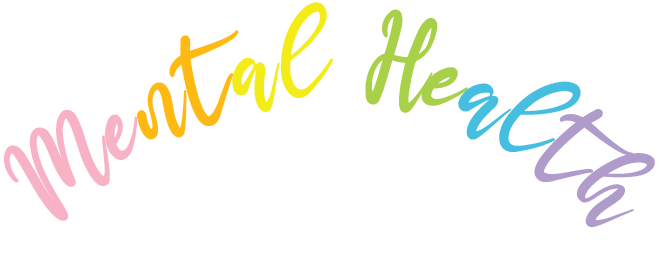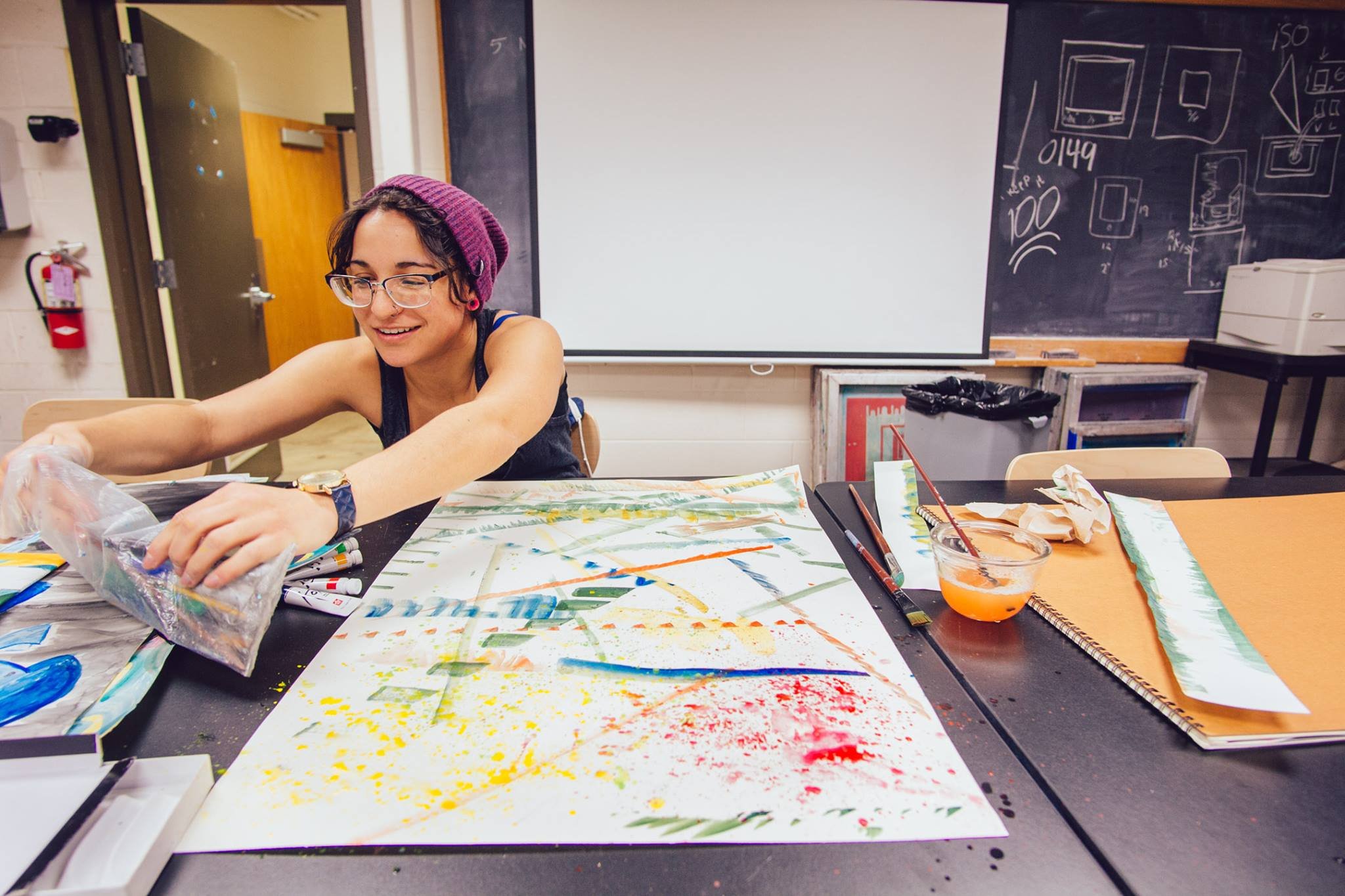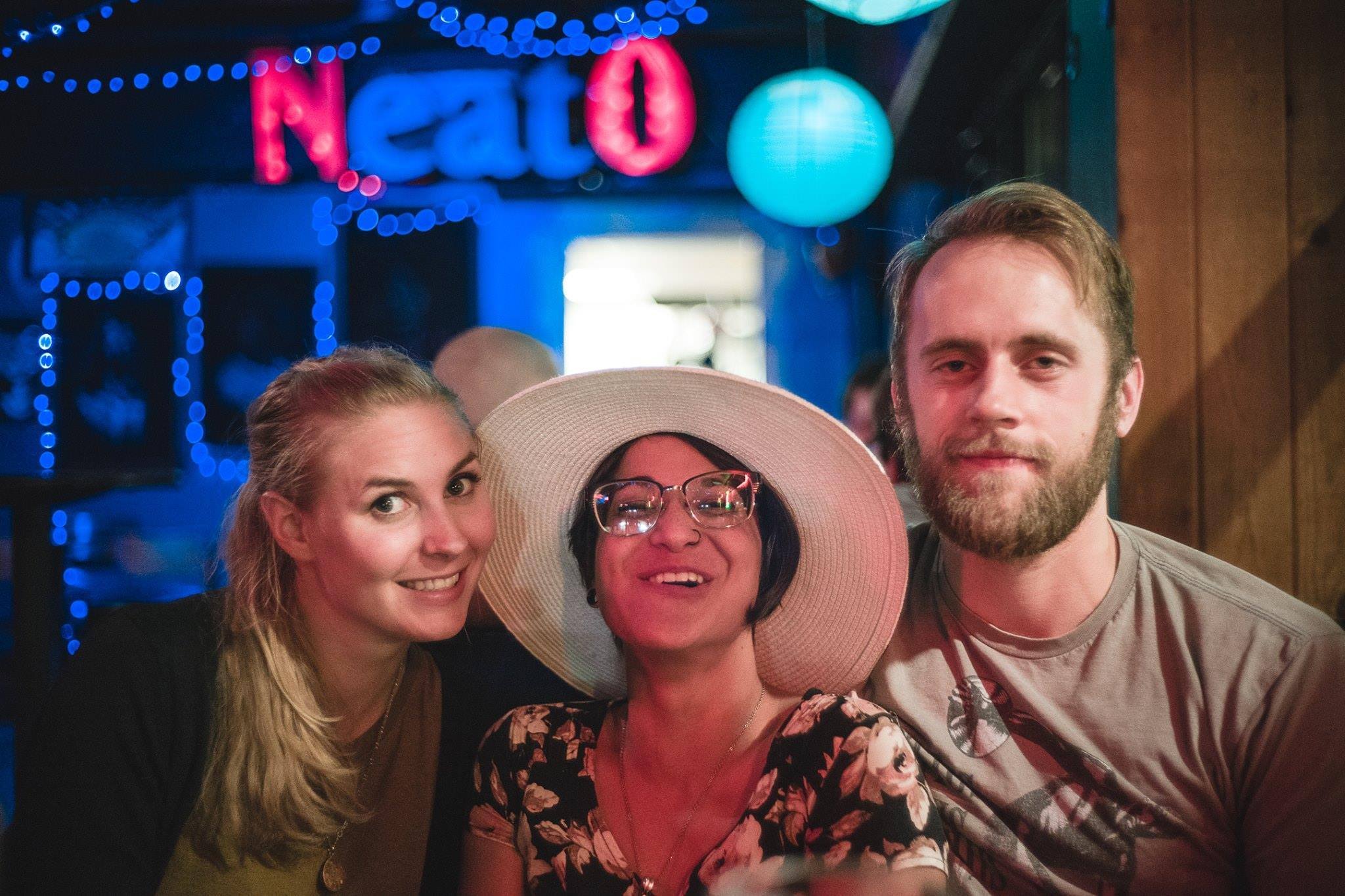Discovering I Am Actually Autistic
By: Ashley
Hello there! April is Autism Awareness month, or, as some prefer, Autism Acceptance month. My name is Ashley. I’m 28 years old, and I was just recently diagnosed with ASD (Autism Spectrum Disorder).
My partner saw me as unique for a long time, but the thing that tipped him off to the Autism bit was my peculiar sensitivity to loud noises. Instead of moving away from loud sounds, I’d close my eyes and plug my ears and move around like the sound was physically hurting me. I’m also really sensitive to certain smells (we have to keep all of the doors in the house shut when we’re cooking so I have a smell-free room to go into in case I get overwhelmed). When I get overwhelmed by a sound, a smell, or a sensation, I get really upset all of a sudden. I knew I was a bit more sensitive than other people I knew, but I always chalked it up to my anxiety or my difficulty processing my emotions. Autism was a new theory.
Our first date
About six months after Jake pitched the whole “Autism” idea to me, I’m sitting in my ADHD intake appointment talking about how difficult it’s been for me to make and keep friends throughout my life. I knew that difficulty in relationships could be part of ADHD, but the doctor raised a question, “Have you ever considered being tested for Autism?”
What is Autism?
Autism is a spectrum disorder, meaning those of us with ASD express our Autism differently. Some common threads folks with ASD share are
Differences in how we socialize (often labeled as “difficulties”)
Specific, special interests
Repetitive behaviors (also called “stimming”)
Sensory sensitivities
Differences in emotional regulation
Differences in perception
Differences in executive functioning
However, we each vary in our expression of each of these traits.
So, back to the doctor’s office. I was surprised and not surprised. The doc went on to explain that, in women, Autism is commonly missed or misdiagnosed. Autistic women tend to learn to blend in better than their male counterparts due to early, rigorous socialization and people-pleasing tendencies. It’s a gift, and a curse. (This video, this article, and this article all address women & Autism - I highly recommend checking them out!)
As a woman who was diagnosed at the ripe old age of 28, this fascinates me. Researchers, like the ones who conducted this study, believe that women and girls tend to camouflage themselves more extensively, also referred to as “masking”. In this Tedx Talk, Kate Kahle expands on this topic in a beautiful way.
Some hypothesize that because girls are socialized earlier and in more rigid ways than boys, Autistic girls learn to mask their ASD in order to be better accepted by their peers, parents, teachers, and others in their lives. In my experience, the masking has become so intense that I sometimes struggle to know whether I’m being authentic or attempting to camouflage in order to fit in. For me, this dichotomy came out as identity crises starting as early as elementary school. I have distinct memories of this sort of dissociative, lost, broken feeling - wondering who I was and where I belonged, if anywhere. This is a fairly common plight for young people, but I do think, for me, it was more intense and lasted longer because of the clash between my natural, Autistic instincts and my rigid socialization in a culture that was specifically designed to celebrate nuerotypicality.
Photo Credit: Cody R S
In learning more about Autism, I’ve been able to reflect back on the friendships I’ve had throughout my life and see that I’ve leaned heavier into relationships with men because to me, they’re easier to understand than relationships with women. I remember when I was in elementary school: a group of girls invited me to a party just to bully me. I was so confused by how they could be so nice one minute and so mean the next. I didn’t know what I had done wrong - I was always just being myself. That experience affected me strongly moving forward, further instilling doubt in me that I understood how to interact with my peers properly, in a way that would earn me the acceptance I craved.
When I was in college, I was told that I made too much eye contact, that I made people feel like I was interrogating them with the questions I asked, and that I was too abrasive. Now, I can see that these are all aspects of my Autism - inappropriate eye contact or lack of certainty around it, curiosity and not being able to read social cues of discomfort, and letting my excitement totally take over when I started talking about something I was passionate about.
Why is it important for us to talk about Autism?
As my doctor pointed out, the DSM (the big book of diagnostic criteria) talks about nuerodivergencies as “deficiencies”, “difficulties”, or as other deviations from nuerotypicality. Unfortunately, Autism is still seen by many as a “disorder” rather than what some are beginning to believe it truly is - simply a difference in how our brains work.
Folks with ASD have, essentially, a different operating system from nuerotypical people. In order to help people with Autism live more free, authentic, and fulfilling lives, it’s important to take a closer look at some of our differences. I believe that with more understanding, more acceptance of our “quirkiness” will follow!
When I told my mom, I asked her why she took me to therapy the first time. I was young, probably around six. She paused, and said, “Well, you just weren’t really fitting in or making friends.” So, while I’ve learned to mask certain aspects of my ASD due to negative feedback I’ve received, there’s a part of my “not fitting in” that’s been with me from the start.
Me and my mom
I wonder now how my diagnosis will impact my future, what I’ll do with this new information. I hope I’ll learn to take off the mask, let go of my anxiety, and learn to live my whole self, but I know that after years of self-suppression, this will take some effort. I also know that I’ve learned valuable skills through my life that have helped me find a career and a circle of people that fit me well. So it’s a bit of a love/hate relationship with the masking thing. I definitely hope to raise awareness about autism, especially in women, and help people to understand that it isn’t a disorder to be cured but a mentality that could be explored and celebrated.
Resources & Other Readings
Articles:
We Need Better Diagnostic Tests for Autism in Women
“Could I Be Autistic, Too?” Signs of Autism in Women with ADHD
The transgender ‘proud Autistic’ psychologist who believes we have Autism all wrong
Websites:
Instagram Accounts:
Ashley is a graphic designer, social media professional, and project manager, and thanks in part to her Autism, she’s passionate about all of those things!
If you find this post valuable and believe in the mission of Mental Health Tings and would like to partner with us financially, you can make a one time donation by buying me a coffee!
You can also make a recurring monthly donation by signing up for our Here for the Blog $10 a month Patreon Tier.
Thank you!





